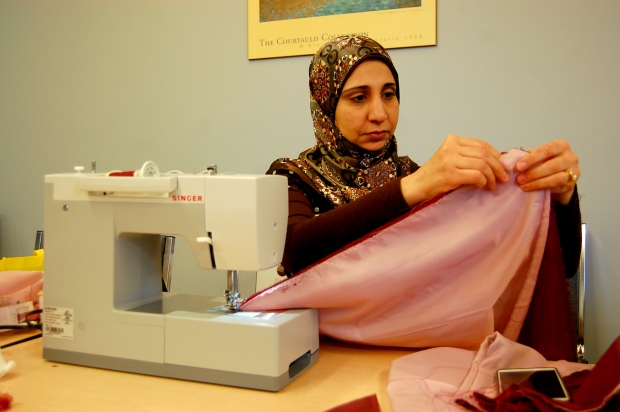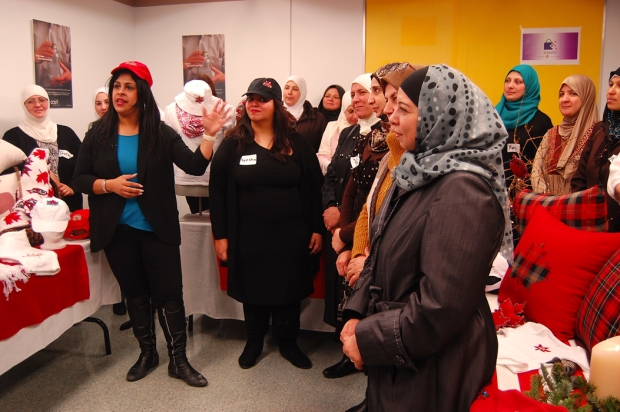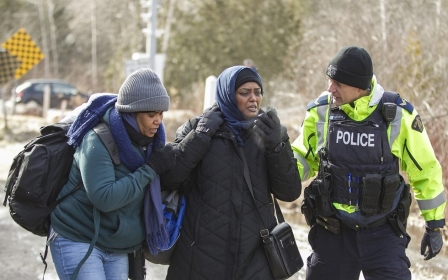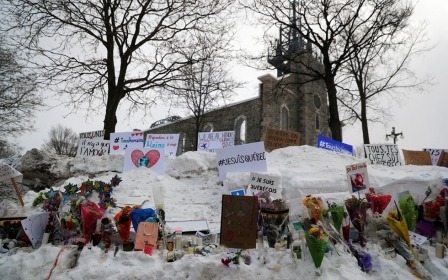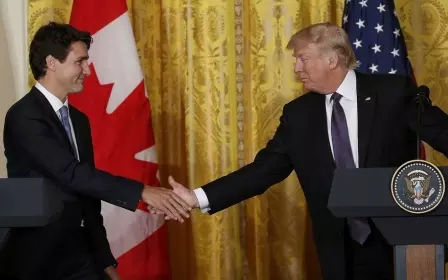Refugee women embrace entrepreneurial spirit in Toronto
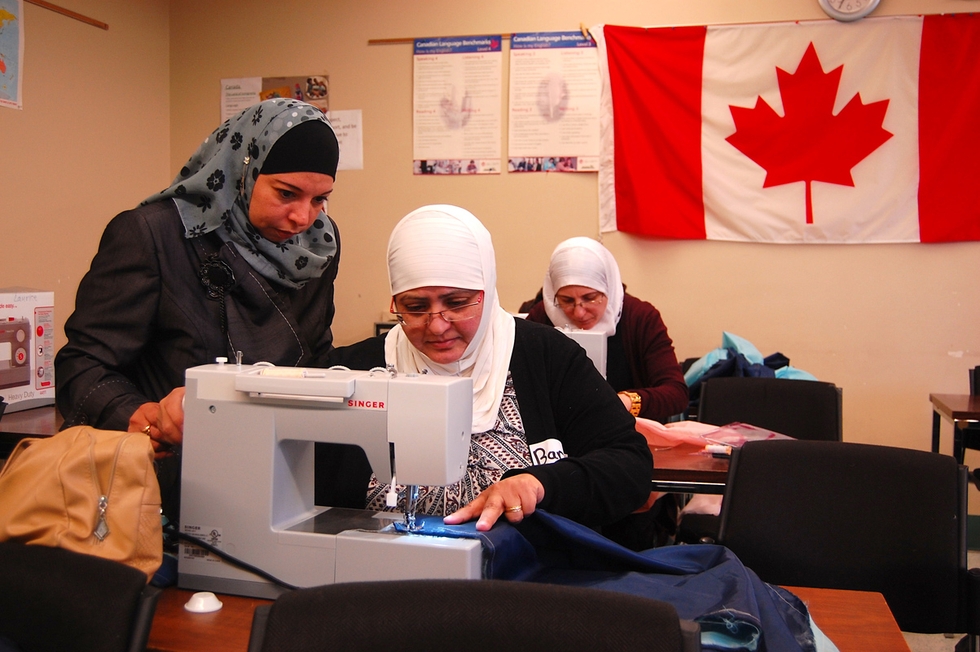
TORONTO, Canada – Refugee women are sewing their way to a new future in Canada, as a new training programme has been launched in Toronto that aims to teach them this skill, along with marketing and entrepreneurship.
About a dozen women ripped long pieces of coloured fabric and loaded spools of thread last Saturday in downtown Toronto, before gliding the material under the needles in swift motions.
A slow and steady hum quickly filled the room, as the women – all from different countries in the Middle East and Africa – chatted in Arabic from behind their sewing machines.
“We are like one family,” said Suha Kalbouneh, a Syrian refugee who was resettled in Canada with her husband in February 2016, as she took a quick break from the sewing table.
Kalbouneh is one of almost two-dozen women participating in Darzee, a volunteer-run programme providing newcomer women in the Toronto area with sewing training, and information to help them build their own, at-home businesses from the ground up.
Women from Iraq, Egypt, Syria, and other countries across the Middle East were selected for the inaugural eight-week programme, which is now about halfway done.
Their work is now available for purchase online, and it includes a special series of hats, scarves, pillows and t-shirts emblazoned with maple leaves and other insignia to commemorate Canada’s 150th anniversary this year.
Kalbouneh said that while she had some experience sewing in Syria, Darzee has helped her learn how to communicate with Canadian customers, and market her work in the new country.
Originally from Damascus, Kalbouneh and her husband lived in Ghana for over three years before being resettled in Canada. She now lives in northwest Toronto, and takes two buses and a subway to get to class every weekend.
“When we reached Canada, really, from the airport, we found [so much] love from people. I can’t explain how I’m feeling… because when you leave your country you find many difficulties. But when we reached here, we found [so much] love,” Kalbouneh said.
Marketing training
Darzee is the brainchild of Mes Amis, a grassroots support network that was originally launched as a clothing drive to help newly-arrived Syrian families in the Greater Toronto Area (GTA).
The group, which was registered recently as a non-profit, has since held free eye clinics for Syrian newcomers, and its Facebook page acts as a hub for refugees and their sponsors to exchange information, or ask for help and support.
The Darzee trainees earn an hourly wage for their work, and each woman will take home a sewing machine when the programme ends.
But they will continue to receive mentorship and guidance on how to build their personal businesses, explained Julie Mahfouz Rezvani, executive director of Mes Amis.
“They’re really just looking for the support that you would give anybody who’s trying something new, to try to make it work to try and settle in this country. They’re not looking for a handout,” Mahfouz Rezvani told Middle East Eye.
She said organisers purposely selected women with different skill levels – some worked as seamstresses in their home countries, while others have very little sewing experience – so that participants can help each other along the way.
Sewing experts are on-hand every week to advise them, and the women also receive marketing training, and information about how to launch their own businesses from home.
“A lot of them are very good at sewing, they just don’t know how to tell the world. And that’s what we help them with,” Mahfouz Rezvani said.
“How do you tell people what you’re doing? How do you advertise? How about this thing called social media that everybody’s using? You’ve got to get into the game. You’ve got to be online.”
Becoming self-sufficient
Bareaa Odeh, her husband, and two daughters, aged 11 and 12, arrived in Canada last year. The family also spent almost three years in Ghana after leaving their native Syria due to the ongoing war.
She said she got involved with Darzee because she wanted to be “an active Canadian”.
“I don’t know anything about sewing,” Odeh said laughing, “but here [they] helped me and step-by-step, they [taught] me.”
Odeh is especially excited about having the opportunity to launch her own business: the programme is also about becoming self-sufficient and standing on your own two feet, a message she said she was happy to convey to her daughters.
“Maybe I’ll have my own job, maybe I can do something,” she said. “I love this programme because this programme [is] not only to give me money… but this programme [teaches] me how can I make money [myself].”
Mahfouz Rezvani said she has seen many of the women become more confident and more independent as the course has progressed, and as Canadians have embraced the Darzee project, and the products the women make.
Maybe I’ll have my own job, maybe I can do something
- Bareaa Odeh, Darzee participant
She said she hoped the programme could also help combat any anti-immigrant sentiment that exists in Canada and elsewhere in the world.
“We intend to give them the constant support and we hope that in return, Canadians… will start to hear about this programme, [and] will start to want to support [it],” she said.
“With the immigrant sentiment that’s out there, I think it’s our responsibility to…change that narrative. Come here, and see these women… They schlep it out here every week to learn, and that’s a good thing. That is what you want.”
Middle East Eye propose une couverture et une analyse indépendantes et incomparables du Moyen-Orient, de l’Afrique du Nord et d’autres régions du monde. Pour en savoir plus sur la reprise de ce contenu et les frais qui s’appliquent, veuillez remplir ce formulaire [en anglais]. Pour en savoir plus sur MEE, cliquez ici [en anglais].


